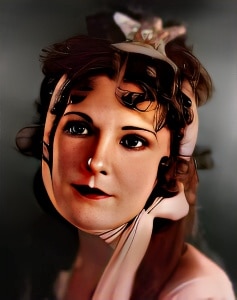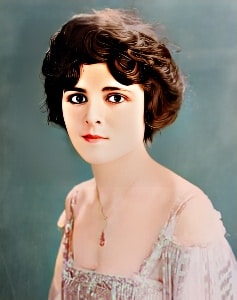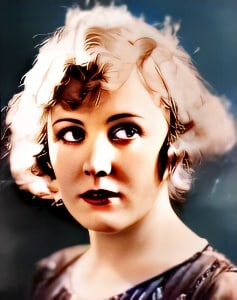 Leatrice Joy, born on November 7, 1893, in New Orleans, Louisiana, was a celebrated actress of the silent film era.
Leatrice Joy, born on November 7, 1893, in New Orleans, Louisiana, was a celebrated actress of the silent film era.
With her grace, elegance, and captivating screen presence, she became one of the leading ladies of early Hollywood, leaving an indelible mark on the history of cinema.
Joy began her acting career in vaudeville and on the Broadway stage before making her transition to silent films. Her debut in Hollywood was marked by her association with Cecil B. DeMille, one of the most influential filmmakers of the time. She signed a contract with DeMille’s production company, which launched her into stardom.
One of Leatrice Joy’s notable performances was in the 1921 silent film “ The Ace of Hearts,” directed by Wallace Worsley. In the film, she played the character Lilith, who becomes the object of affection for Lon Chaney’s character, Farallone, a member of a secret society. Joy’s portrayal of Lilith, a woman caught in the crosshairs of a complex and suspenseful plot, showcased her ability to convey depth of emotion and vulnerability, earning her acclaim as a talented actress.
Leatrice Joy’s career included a diverse range of roles, from dramatic heroines to romantic leads. Her performances were characterized by her expressive eyes and the natural grace she brought to the screen. She was known for her ability to connect with audiences on an emotional level, a quality that endeared her to filmgoers of the silent era.
As the silent film industry evolved, Leatrice Joy continued to adapt and thrive in the changing landscape. She was versatile in her acting, transitioning from drama to comedy, and she was highly regarded for her comedic timing. Her work in comedy added to her reputation as a multifaceted actress who could excel in various genres.
Joy’s on-screen chemistry with some of the leading actors of the time, including Douglas Fairbanks and John Barrymore, contributed to her popularity. Her collaborations with these iconic figures helped solidify her status as a sought-after leading lady.
Despite her success in silent cinema, the advent of sound films in the late 1920s posed a challenge for many silent film stars. Leatrice Joy made the transition to sound films but did not achieve the same level of success she had enjoyed during the silent era. She eventually retired from acting in the 1930s.
Leatrice Joy’s contributions to early cinema left an enduring legacy. Her performances continue to be celebrated by silent film enthusiasts, and her elegance and grace on screen are a testament to the timeless appeal of silent cinema. She remains a cherished figure in the history of Hollywood’s golden age, a symbol of the glamour and artistry of the silent film era.
Loading live eBay listings...




